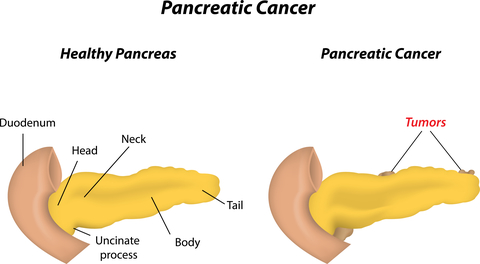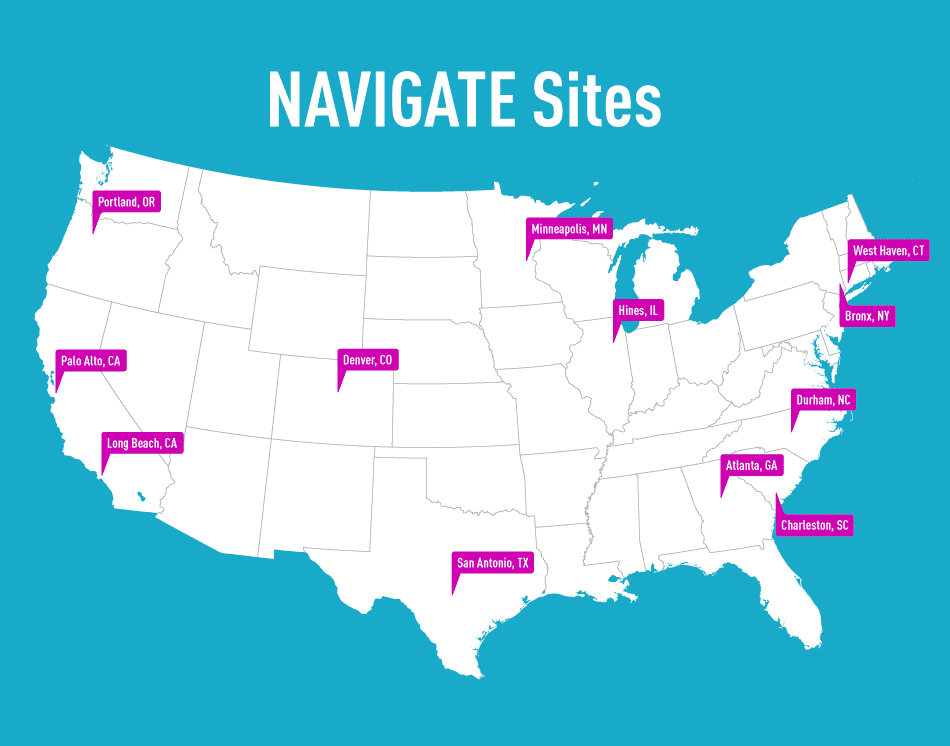
Research is a Weapon Against Cancer
See how researchers are working hard to find new ways to battle and defeat cancer – and how you can join the fight!
Research Highlights
Research plays a crucial role in the prevention, diagnosis, and the fight against cancer. Spread the word!
MVTCP Research Education Highlight Video
Support is essential to developing successful diverse cancer researchers and physicians of the future. Such a support is available through MVTCP program. Hear more details from students benefitting from this program in the video.
Fighting Cancer with Research
Over 250,000 new cases and over 40,000 deaths are attributed to Breast cancer in the United States every year. This video session will enlighten you particularly on an aggressive Breast cancer type and the likely risks.
HPV Vaccine Benefits Research
Human Papillomavirus (HPV) is responsible for over 30,000 new cancer cases every year. It accounts for 6 different cancer types; 3 in women, 2 in men, and 2 in both gender. Listen to the video session to learn more about prevention of HPV cancer with HPV vaccine. Just 3 shots confer protection against HPV.

TAILORx Trial Finds Most Women With Early Breast Cancer Do Not Benefit From Chemotherapy
TAILORx is a phase 3 clinical trial that began in 2006. The trial found that 70% of women with the most common type of breast cancer (HR-positive, HER2-negative, node-negative breast cancer), when it is caught early, may be able to avoid chemotherapy.
Women age 75 or younger who find this type of cancer early (early stage) can get a 21-gene expression test (a type of genetic or DNA test). Then they can discuss the results with their doctor for guidance on choosing the right treatment for them. If the test results say she has low or immediate risk of the cancer coming back, she may be able to get hormone treatment only, without getting chemotherapy. The TAILORx study found that chemotherapy did not give any extra benefit for most of these women.
To read the full article from the National Cancer Institute please visit the link below. https://www.cancer.gov/news-events/press-releases/2018/tailorx-breast-cancer-chemotherapy?cid=eb_govdel.
“ TAILORx trial finds most women with early breast cancer do not benefit from chemotherapy” originally posted by the National Cancer Institute.

New Treatment Approach for Some Patients with Early-Stage Pancreatic Cancer
Two new clinical trials show a good outlook for early-stage pancreatic cancer if treated with surgery. In one trial, patients on a multi-drug regimen chemotherapy lived longer after surgery than those on single-dose chemotherapy. In the other trial, patients given chemotherapy and radiation before surgery lived longer than patients who only received chemotherapy after surgery. These important trials will add new treatment options for patients with early-stage pancreatic cancer.
“Altering Chemotherapy Improves Outcomes in Early-Stage Pancreatic Cancer was originally published by the National Cancer Institute.”
Click link to learn more.
Cancer Survivorship Research
Many cancer survivors and their care givers experience a lot of stress, worries and emotional challenges. Fortunately, researchers have been able to come up with a program to help cancer survivors during and after their treatment. Watch the video for more details.
NCI: Why I Do Cancer Research
Dr. Ted Timble, Director of the National Cancer Institute’s (NCI) Center for Global Health shares why he is committed to his career in cancer research. An estimated 14 million people will be diagnosed with cancer this year and more than 8 million will die. Cancer research can reduce these numbers by improving treatment,symptoms,and survivorship.

Drug Prevents Chemo-Related Hearing Loss in Some Children
One side effect of chemotherapy for some children with cancer is hearing loss. According to a new study, the drug sodium thiosulfate can protect the hearing of children with cancer undergoing treatment with the chemotherapy drug cisplatin.
Today, more than 80% of children diagnosed with cancer are alive at least 5 years after diagnosis. Many of these children are considered cancer free. Researchers are now aiming to reduce the long-term side effects that children experience with many cancer treatments. These can include heart or lung problems, cognitive difficulties, infertility, and hearing loss.
The participants in the trial were randomly assigned to receive sodium thiosulfate 6 hours after each cisplatin treatment or to receive only cisplatin. The children in the sodium thiosulfate group were half as likely to experience permanent hearing loss than children who received cisplatin alone, the researchers reported.
“Sodium Thiosulfate Prevents Cisplatin-Induced Hearing Loss in Some Children was originally published by the National Cancer Institute.”
Join Research Studies
You and your loved ones can help advance cancer prevention and treatment efforts by taking part in research studies.
NCI: Steps to Find a Clinical Trial
Clinical trial is a type of research study that involves people with certain health conditions. This research helps doctors to determine whether new treatments are safe and are more efficient in current treatments.
National Cancer Institute provides a six step online guide that helps you search for open trials and decide if you can join one. Knowledge gained from clinical trials is the key to making progress in management of cancer.
For more information visit http://cancer.gov/trialguide
Paying for Clinical Trials
A clinical trial is a scientific study to find out which treatments or devices are efficient and safe in managing disease conditions such as cancers. They help doctors broaden their knowledge about cancer and develop better treatments that can help you and other people in the future.
It is important to take part in clinical trials. Participation in clinical trials can lead to important benefits for patients, such as halting disease progression and improved health outcomes. In this video, the National Cancer Institute, shows the different costs in a clinical trial and who has to pay for which costs.
Visit https://clinicaltrials.gov/ to find a clinical trial that you may be eligible to take part.
“Paying for Clinical Trials Video” originally posted by the National Cancer Institute
“Clinical Trials” information originally posted by the Centers for Disease Control and Prevention

NIH All of Us Research Program
Join the All of Us Research Program to become a part of history. The All of Us Research Program is a historic effort to gather data over many years from a million or more people living in the United States. The goal is to move forward in research and improving health. This research program will serve as a national research resource to inform thousands of research studies, covering a wide variety of health conditions. For more information visit the All of Us website.
NIH and Prostate Cancer Foundation Launch Large Study on Aggressive Prostate Cancer in African-American Men
African American men are more likely to get an aggressive form of prostate cancer which grows and spreads quickly. RESPOND is a study that aims to understand why. The National Institutes of Health and Prostate Cancer Foundation are funding the study which will enroll 10,000 African American men diagnosed with prostate cancer and look at the role of genes (DNA), social stress, and other risk factors.
To read more about this study please visit the link below.
“NIH and Prostate Cancer Foundation Launch Large Study on Aggressive Prostate Cancer in African-American Men” originally published by the National Institute of Health

NCI and Veterans Affairs (VA) Collaborate to Boost Veterans Access to Clinical Trials
Veterans with cancer in 12 states will have easier access to new cancer treatments. A new program called NAVIGATE will help veterans access clinical trials through Veterans Affairs (VA) facilities.
Click on the link below to read the full article from the National Cancer Institute.
https://www.cancer.gov/news-events/press-releases/2018/navigate-va-clinical-trials
“NCI and VA collaborate to boost veterans access to clinical trials” and “NAVIGATE Sites” photo originally published by the National Cancer Institute

